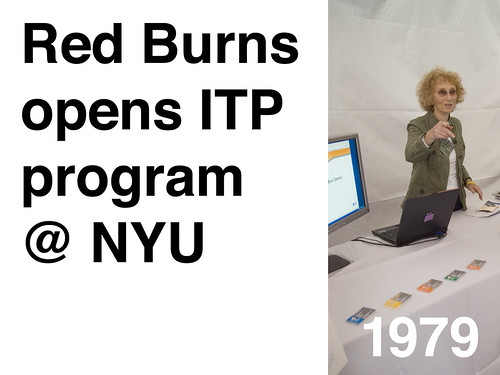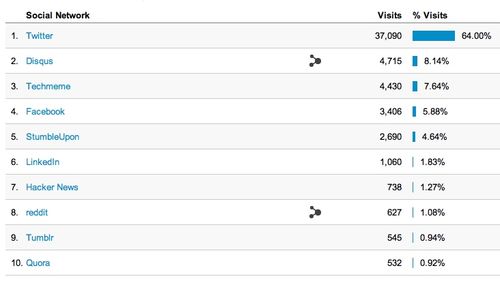The Fallacy Of Zero Sum Game Thinking
We invest in a lot of marketplaces. When they scale, we often hear complaints from early adopters, amplified by the media, that the early adopters are getting hurt by the "mainstreaming" of the marketplace. You hear that kind of argument with other kinds of networks as well. When Twitter went mainstream, a lot of the early adopters complained that it had lost its soul.
I think most of this thinking is emotional, but not rational. A rising tide lifts all boats, or at least most of them. Kickstarter has published some data on this issue. I like this part from that post:
Spike Lee brought three decades of fans to Kickstarter when he launched his project. He introduced many of them to this new way of funding creative works, and to the thousands of other projects that are funding on Kickstarter. Of Spike’s backers, 47% had never backed a Kickstarter project before.
The Veronica Mars and Zach Braff film projects were similarly criticized for hurting other projects, but in reality were a windfall for creators. Those projects brought thousands of new people to Kickstarter who have since pledged more than $1 million to 6,000 other projects (film projects have received most of those pledges).
In the past 90 days alone, more than $21 million has been pledged to filmmakers on Kickstarter not named Rob Thomas, Zach Braff, or Spike Lee. Even without counting these projects, it’s been the biggest three months for film ever on Kickstarter!
Almost five million people have backed a project on Kickstarter, and more than a million have backed two or more projects. These repeat backers are responsible for 59% of the total money pledged to Kickstarter projects — a whopping $444 million. On average, 2,130 people a dayhave become new repeat backers this year. This is huge! Future creators will benefit from more and more people using Kickstarter.
We have seen a similar effect at Etsy. When a wave of new sellers came to Etsy as it became a mainstream marketplace a few years ago, the early sellers were concerned about the competition these new sellers would create for them. But Etsy has grown its gross transactions at between 70-100% per year for the past five years, a rate that is roughly the same as the rate of new sellers joining the service. For every new seller that joins Etsy, it seems that there is a new buyer waiting to consider buying from them.
The cool thing about these marketplaces is that the sellers (or project creators in Kickstarter's case) are the primary marketing engine. Sellers bring the first time buyers. And then many of them stick around and transact again and again, often with sellers other than the one that brought them in the first place. It is a commons where everyone (or most everyone) benefits from the expansion of the marketplace.
I felt like explaining this because I read this opinion piece in the NY Times today about Kickstarter. While the title of the piece is awful (nobody has their "hands out" on Kickstarter), I like how they ended it:
The gentrification of Kickstarter doesn’t seem to be hurting its original inhabitants. It may even be helping them.
The only quibble I have with that line is the use of the word "may". I am certain it is helping them.

